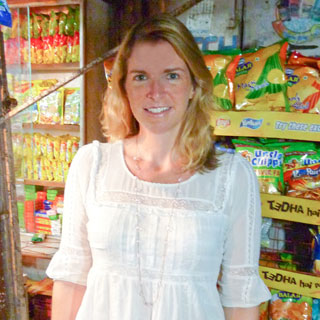Cathleen Tobin, MBA ’99

Switching Gears in Women’s Products

For 11 years, Cathleen Tobin marketed products for women — from Snuggle Fabric Softener to Revlon Lip Color — at multinationals, including Unilever and Johnson & Johnson. But in 2010, she decided to transfer her skills to a different product targeting women: savings accounts.
When Tobin joined Women’s World Banking (WWB), a nonprofit global network of microfinance organizations, she not only changed her focus from cosmetics to banking, she also found herself working in Kenya and India, where she has been developing marketing campaigns to educate women about the benefits of opening savings accounts.
“Most women in developing countries have never had a savings account,” she says. “They save at home, in saving circles, or through other informal methods. We’re not trying to convince them to stop saving money in the ways that they save today but to diversify a bit. A bank account can offer them security and privacy that their current methods do not.”
Founded in 1979, WWB works with a network of 39 financial institutions in 27 countries to provide a comprehensive range of financial services, from insurance to small loans enabling women to start their own businesses.
Recently, new regulations in many countries have allowed microfinance institutions to convert to full-service banks licensed to take deposits. WWB, headquartered in New York City, has been working with such institutions to develop savings products and financial education programs for women who previously had no access to formal savings.
One obstacle to increasing access to savings accounts for women in developing countries is their high rate of illiteracy. “As a bank, you’ve got to re-engineer how to communicate with customers who can’t read or fill out a form,” Tobin says.
Tobin finds her work with WWB a welcome change in her career because of the opportunity to travel and to transform women’s lives. “The institutions we work with offer women basic financial services that allow them to stabilize their families and build a better future for their children, which is the number-one goal of most of the women we meet,” she says.
